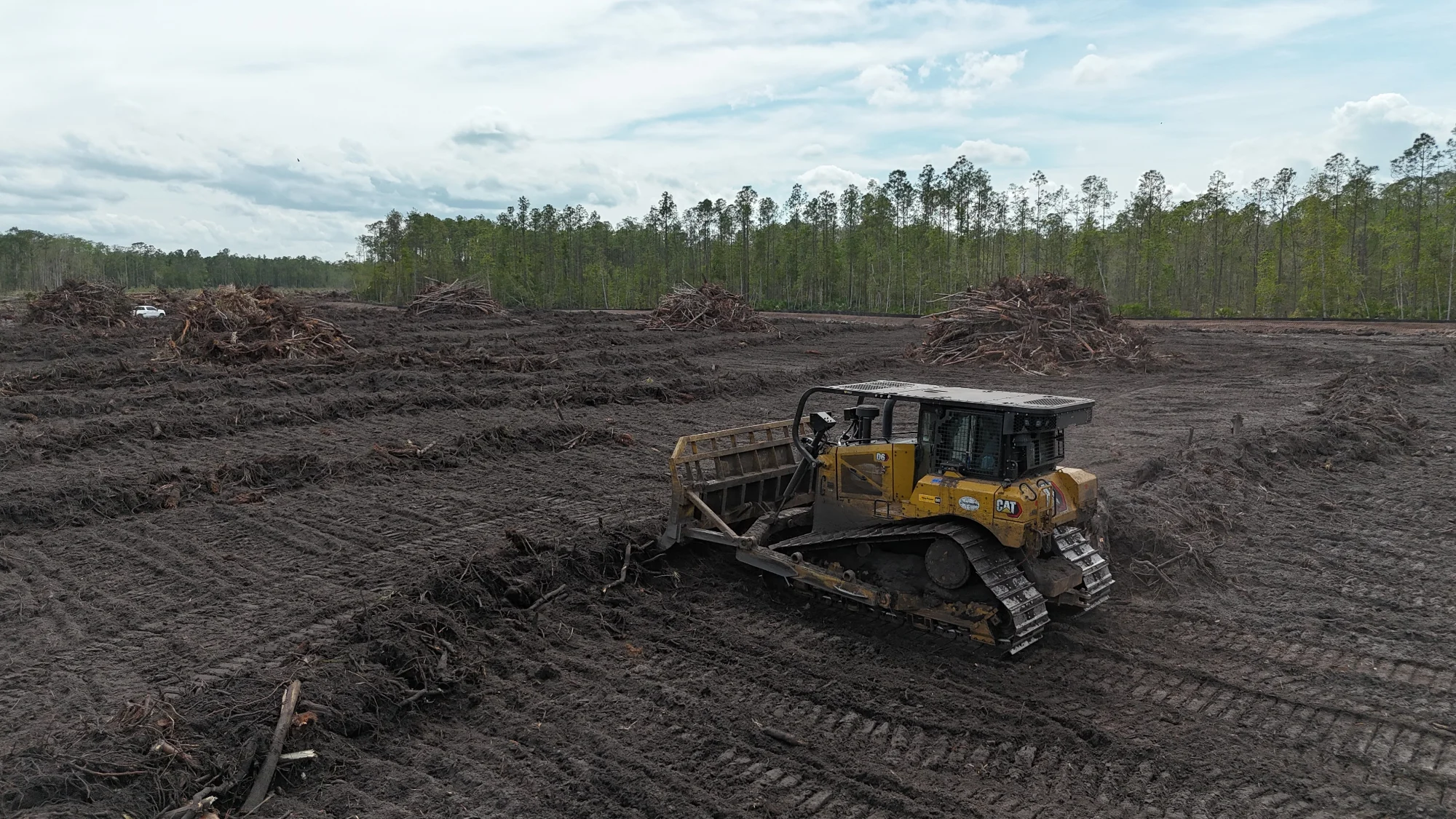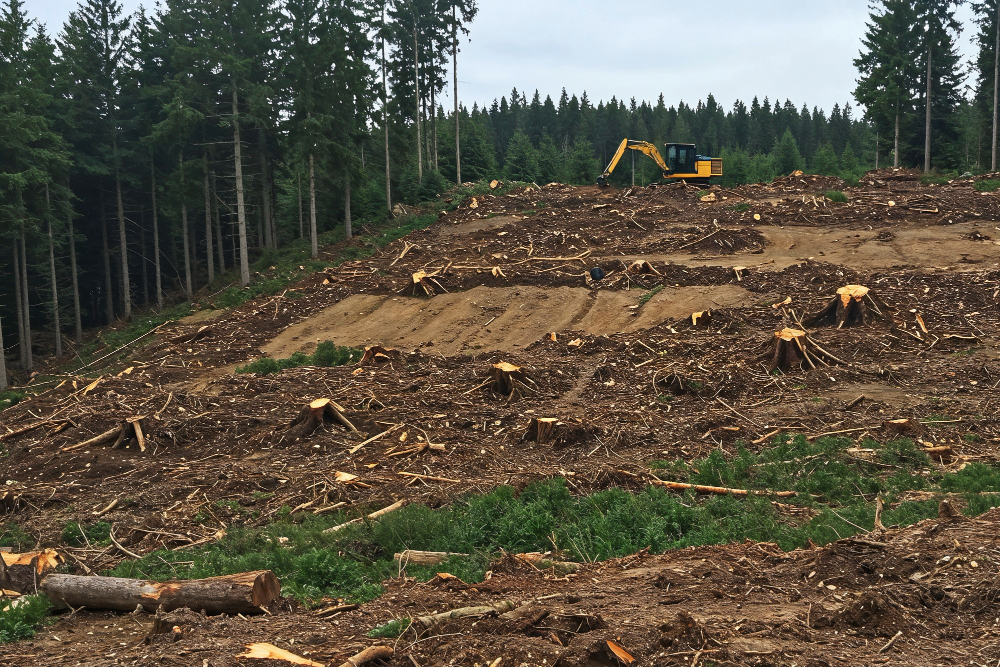

When you own property that needs to be cleared for development, farming, or safety reasons, selecting the right land clearing service can make the difference between a smooth project and a costly nightmare. Whether you're preparing land for a new home, expanding agricultural space, or removing hazardous vegetation, the expertise and equipment of your chosen contractor will determine both the quality of results and your overall experience.
Land clearing involves much more than simply removing trees and brush. Professional services must navigate environmental regulations, handle proper disposal of debris, protect existing structures and utilities, and ensure the land is properly prepared for its intended use. Poor execution can lead to soil erosion, drainage problems, environmental violations, and significant additional costs down the road.
This comprehensive guide will walk you through everything you need to know about selecting a land clearing service that meets your specific needs, timeline, and budget while delivering professional results you can count on.
Land clearing encompasses various specialized services, each requiring different equipment, expertise, and approaches. Understanding these distinctions helps you communicate your needs clearly and evaluate whether a contractor has the right capabilities for your project.
Residential land clearing typically involves smaller parcels and requires careful attention to existing landscaping, utilities, and neighboring properties. This work often includes selective tree removal, brush clearing, and stump grinding while preserving desirable vegetation and maintaining aesthetic appeal.
Commercial and agricultural land clearing usually covers larger areas and focuses on efficiency and cost-effectiveness. These projects may involve complete forest removal, pasture clearing, or site preparation for large-scale development. The equipment and techniques used differ significantly from residential work.
Environmental land clearing requires specialized knowledge of local ecosystems, protected species habitats, and environmental regulations. This type of work often involves invasive species removal, wetland restoration, or fire prevention clearing while minimizing ecological impact.
Before evaluating any other aspect of a land clearing service, verify their licensing and insurance coverage. Legitimate contractors carry comprehensive general liability insurance, workers' compensation coverage, and any required local licenses. Request to see current certificates and verify coverage amounts are adequate for your project size.
Companies operating without proper insurance put you at significant financial risk. If accidents occur on your property involving uninsured contractors, you could face liability for injuries, property damage, or environmental cleanup costs.
Land clearing experience varies dramatically between contractors. Some specialize in residential tree removal, while others focus on large-scale commercial projects. Match the contractor's background to your specific needs.
Ask about similar projects they've completed, request references from recent clients, and inquire about their experience with your property type and size. A contractor experienced with small residential lots may not have the equipment or expertise for multi-acre clearing projects.
Modern land clearing relies on specialized equipment that varies based on project requirements. Professional services should have appropriate machinery for your terrain, vegetation type, and access limitations.
Larger projects benefit from tracked feller bunchers, mulching machines, and heavy-duty chippers. Smaller residential jobs may require compact equipment that can navigate tight spaces without damaging existing landscaping or structures. Discuss equipment selection during initial consultations to ensure contractors can handle your project efficiently.
Professional land clearing services provide detailed written estimates that break down costs by specific tasks. Quality estimates include site preparation, clearing methods, debris removal, cleanup, and any additional services like stump grinding or grading.
Avoid contractors who provide only verbal estimates or vague written quotes. Detailed proposals demonstrate professionalism and help prevent disputes over scope and pricing later in the project.
Land clearing pricing varies based on multiple factors including acreage, vegetation density, terrain difficulty, access limitations, and disposal requirements. Some contractors charge by the acre, while others use hourly rates or flat project fees.
Per-acre pricing works well for large, relatively uniform properties. Hourly rates may be more appropriate for complex sites with varied vegetation or challenging access. Flat fees provide budget certainty but require accurate scope definition upfront.
Obtain quotes from at least three qualified contractors to understand market pricing and service approaches. However, don't automatically choose the lowest bid without considering experience, equipment, and included services.
Extremely low bids often indicate corners will be cut on safety, environmental compliance, or cleanup. Conversely, the highest bid doesn't guarantee superior service. Focus on value by comparing what's included in each proposal.
Before making your final decision, ask comprehensive questions that reveal each contractor's professionalism, capabilities, and approach to your project.
Inquire about their typical project timeline and what factors might cause delays. Ask about their cleanup standards and what condition they'll leave your property in after completion. Understanding their communication style and project management approach helps set appropriate expectations.
Ask specific questions about environmental considerations, permit requirements, and utility location procedures. Professional contractors should demonstrate knowledge of local regulations and best practices for protecting your property and the surrounding environment.
Request information about their crew size, supervision structure, and safety protocols. Well-managed operations have clear chains of command and established safety procedures that protect both workers and property owners.
Several warning signs indicate contractors you should avoid for land clearing projects. Door-to-door solicitation, especially following storms, often involves unlicensed operators looking for quick profits.
Contractors requesting large upfront payments before beginning work create unnecessary risk. Standard practice involves minimal deposits with progress payments tied to completed work phases.
Verbal-only agreements, pressure tactics to sign immediately, and reluctance to provide references all indicate unprofessional operations. Quality contractors welcome questions and provide time for careful decision-making.
Lack of proper equipment for your project size suggests contractors may be inexperienced or attempting work beyond their capabilities. This often leads to extended timelines, poor results, or project abandonment.
After gathering information, comparing proposals, and checking references, consider all factors together rather than focusing solely on price. The right contractor combines competitive pricing with appropriate experience, proper licensing, adequate insurance, and professional communication.
Timeline compatibility matters significantly for projects with specific completion deadlines. Ensure your chosen contractor can commit to your schedule and has contingency plans for weather delays or unforeseen complications.
Clear communication throughout the evaluation process often indicates how contractors will perform during the actual work. Choose services that respond promptly, answer questions thoroughly, and demonstrate genuine interest in your project success.
Once you've selected a land clearing service, proper preparation ensures smooth project execution. Clearly mark property boundaries to prevent accidental clearing of adjacent land. Identify and mark utilities, septic systems, wells, and any structures or vegetation to be preserved.
Discuss access routes and staging areas for equipment and debris. Large machinery can damage driveways, lawns, or landscaping, so establish clear agreements about access and restoration responsibilities.
Understand the timeline and maintain realistic expectations about weather dependencies and potential complications. Quality contractors communicate proactively about progress and any issues that arise.
Sanford, FL property owners have access to numerous land clearing services, but selecting the right contractor requires careful evaluation of local experience, equipment capabilities, and understanding of regional environmental considerations.
Florida's unique climate, soil conditions, and environmental regulations require specialized knowledge that out-of-state contractors may lack. Local services understand wetland restrictions, protected species considerations, and seasonal limitations that affect project planning and execution.
If you need professional land clearing in Sanford, FL, contact Drinkwater & Drinkwater today to get a quote. Their experienced team provides comprehensive land clearing services with the equipment, expertise, and local knowledge necessary for successful project completion.